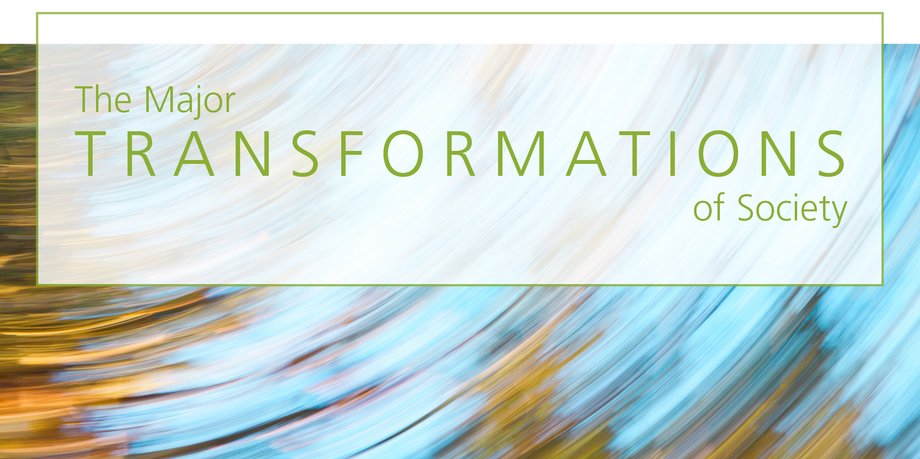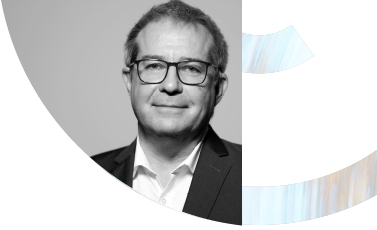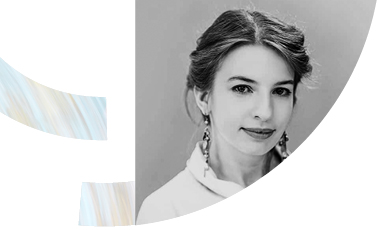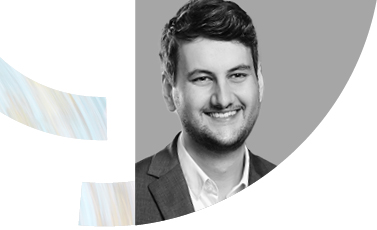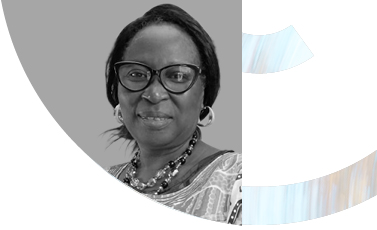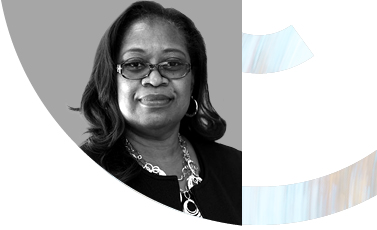Understanding and shaping socio-ecological change
Never before has our society been confronted with changes and challenges in a constellation of simultaneity and acceleration as we are experiencing them today. Future tasks such as shaping demographic change and slowing down climate change while preparing to deal with its already inevitable consequences coincide with the Covid 19 pandemic, the wars in Ukraine and other parts of the world, a destabilization of democratic societies and the rise of a new authoritarianism that was hardly considered possible just a few years ago. Against this backdrop, terms such as acceleration and resilience are becoming fashionable, and a social sense of being overwhelmed is expressing itself as "unease".
As a university of applied sciences, the Catholic University of Applied Sciences North Rhine-Westphalia (katho) is taking a close look at the major social transformations in the context of a congress from September 26 to 28, 2023 in Cologne. During three days options for social action shall be discussed and the role of science and higher education in shaping social transformations shall be reflected upon. Together with the participants/with you, we want to explore the key topics of sustainability, democracy, social cohesion, demography, intergenerational justice and digitality from different perspectives in lectures, panels and discussions.
We cordially invite you to exchange ideas with us and look forward to welcoming you to our university in Cologne! Renowned experts will accompany us.
Prof. Dr. Hans Hobelsberger Rector of the Catholic University of Applied Sciences North Rhine-Westphalia (katho)
Contact
If you have any questions, please feel free to contact us at kongress(at)katho-nrw.de
- Congress Program
- Panels
- Excursions
- Evening program
- Organisation
Congress Program
Venue: Katholische Hochschule Nordrhein-Westfalen (katho), Cologne Campus, Wörthstraße 10, 50668 Köln
Live Stream: We will live stream the keynotes.
Day | Schedule |
|---|---|
Tuesday, 26 September 2023: THE MAJOR TRANSFORMATIONS | 9:00 AM Registration 10:00 AM Welcome Address 10:30 AM Opening dialogue with international representatives: Dr. Robin S. Mama (Monmouth University), Prof. Rachel K. Gesami (The Catholic University of Eastern Africa), Dr. Deep Jyoti Gurung (CHRIST University), Prof. Dr. Martin Klein (katho) 12:00 PM Keynote: Dr. Stephan Klingebiel, followed by Q&A session 1:00 PM Lunch Break 2:00 PM to 5:00 PM Panels
6:00 PM to 10:00 PM Reflection and dinner during a Rhine cruise |
Wednesday, 27 September 2023: SOCIAL AND POLITICAL APPROACHES AND CONSEQUENCES | 9:00 AM Arrival 9:30 AM Keynotes and Conversation: Marina Weisband & Marthe Wandou 11:30 AM to 3:00 PM Panels / 1:00-1:30 PM Lunch snack
from 3:30 PM Excursions 10:30 PM "Experience Cologne Cathedral" - Cathedral visit at night |
Thursday, 28 September 2023: MISSION AND PERSPECTIVES OF SCIENCE AND UNIVERSITIES | 9:00 AM Arrival 9:30 AM Keynote: Prof. Dr. Robert Lepenies 10:30 AM Keynote: Prof. Pamela Scott-Johnson, PhD 11:30 AM Break 12:00 PM Podium discussion with Prof. Dr. Robert Lepenies, Prof. Pamela Scott-Johnson, Prof. Dr. Barbara Schermaier-Stöckl, Julian Bickmann, Nina Lorenz, Tobias Tirtey 1:00 PM Lunch break 2:00 PM to 5:00 PM Panels
5:00 PM Dinner 6:30-8:00 PM Final concert by the JugendJazzOrchester NRW with pieces on climate change, environmental protection and sustainability |
Panels Day 1 (26 September 2023)
Panel Language: German
Chair: Prof. Dr. Sebastian Laukötter
Short description:
The discussion on socio-ecological transformations is characterized by a confusion of attributions and rejections of responsibility, resulting in a diffusion of responsibility. In the first part of the panel, the question of an appropriate understanding of personal and structural responsibility as well as the question of the conditions of individual behavioral change and acceptance of responsibility will be examined from philosophical and psychological perspectives. In the second part of the panel, the potential for promoting sustainable action will be examined using the example of social work. The aim is to open up new perspectives for a differentiated assessment of attributions of responsibility and accountability against the background of individual and structural framework conditions.
Speakers:
- Prof. Dr. Sebastian Laukötter (katho, Münster Campus)
- Prof.in Dr.in Swantje Notzon (katho, Münster Campus)
- Milena Jostmeier and Fady Guirgis (katho, Münster Campus)
Panel Language: German
Chair: Prof. Dr. Stephan Grigat
Short description:
In the post-Nazi society of the Federal Republic of Germany as well as in the global world society, anti-Semitism is an ideology of integration that is able to bring together heterogeneous political spectrums. Currently, this is particularly evident in conspiracy myths, which play a role both regionally and globally: for example, in protests against Corona measures, in right-wing agitation against a "great exchange," in certain manifestations of Turkish nationalism, or in the Iranian Holocaust-denying regime. In discussions about coming to terms with the Nazi past, however, such manifestations of contemporary anti-Semitism have so far played only a subordinate role. In the lectures of this panel, the arc will be drawn from the social relevance of anti-Semitic conspiracy myths in North Rhine-Westphalia to an examination of National Socialism as a foil for a critique of contemporary anti-Semitism on a global scale.
Round 1, 2:00-3:20 PM: Conspiracy Narratives & Ideologies: National & Global
Radicalization processes through conspiracy ideologies (Prof. Dr. Gudrun Hentges, University of Cologne)
Conspiracy mentality and experience of crisis (Prof. Dr. Markus Baum, katho, Aachen Campus)
Conspiracy Narratives in Turkish Nationalism (Dr. Ismail Küpeli, University of Cologne)
Conspiracy Myths of the Iranian Regime (Prof. Dr. Stephan Grigat, CARS/katho, Aachen Campus)
Round 2, 3:40-5:00 PM Anti-Semitism in North Rhine-Westphalia - Findings & How to Combat It
Current manifestations and expressions of anti-Semitism in North Rhine-Westphalia (Marit-Inga Zimmermann, RIAS NRW)
Perceptions and Experiences of Jews with Anti-Semitism (Sebastian Mohr, Sabra Düsseldorf)
Anti-Semitism as a Challenge for the Police (Dr. Marc Grimm, University of Wuppertal)
Panel Language: German
Chair: Prof.in Dr.in Judith Haase (katho, Münster Campus), Prof.in Dr.in Vanessa Schnorr (Catholic University of Applied Sciences Mainz)
Short description:
In the sense of "child protection as a social modernization project" (Bode 2021: 25 in Gedik/Wolff), the aim of this panel is to explore activities and programs for the protection of children and their scope for change, but also their needs in the direction of an inclusive, subject-oriented and cross-system or system-connected child protection. Therefore, research and practice development projects are presented and discussed, which capture challenges of system boundaries on different levels and for the perspective of different involved actors.
Topics / projects presented:
"Child Protection and Children's Rights"
(Prof.in Dr.in Doris Bühler-Niederberger).
"University and practice as actors in child protection. Insights into an innovative event format for students and professionals of the ASD"
(Prof.in Dr.in Verena Klomann, Dr.in Julia Breuer-Nyhsen).
University and practice are the central actors in and for the qualification of professionals for and in child protection. This demanding qualification mandate is accompanied by the challenge to train professionals in a way that is both compatible with practice and at the same time conveys the necessary knowledge and enables the transformation and relationalization of this knowledge. This requires teaching and event formats that make it possible to experience the interplay between university and practice in an exemplary manner and thus open up diverse testing, learning and reflection spaces. The two speakers will present an innovative teaching project that takes up these considerations and was realized in cooperation with representatives from the general social services of the youth welfare offices.
"Victims, perpetrators, (sufferers), agents, objects and/or subjects?! - Parents' experience as central actors in child protection proceedings"
(Prof.in Dr.in Michaela Berghaus)
Fathers and mothers, as central participants or "sufferers" in child protection proceedings, are of particular importance for the beginning, the course and the end of the entire process. As key actors, they have a decisive influence on the quality of the practice. All the more surprising is the observation that they often receive (too) little attention in research and practice. At present, empirical knowledge about how they experience the process of averting a risk to the welfare of a child and how they deal with the resulting consequences is limited. The panel aims to reduce this "blind spot" by focusing on the subjective experience and coping of affected parents. Qualitative findings will be presented and then put up for discussion. A critical examination of the perspective of affected parents, which has so far been neglected in professional and public discussions and which is considered in scientific discourses and research projects but rarely directly raised, offers the opportunity to firstly put the professionalism of responsible professionals to the test from multiple perspectives and secondly to be able to use starting points for changes in the procedures for averting a risk to the welfare of a child and to establish them in child protection practice.
"Actors and Institutional Cooperation in Child Protection - Results from the DFG Project Child Protection Careers".
(Prof.in Dr.in Judith Haase, Prof.in Dr.in Vanessa Schnorr)
The DFG project "Child Protection Careers" reconstructed child protection activities in Düsseldorf from the 1970s to the mid-2010s on the basis of extensive files and conceptual documents. The central goals of the study were the organizational production of child protection, the description of assistance and biographical case histories, and the investigation of the consequences of measures from the perspective of child protection children who are adults today. The paper presents findings related to the panel topic about what is documented in the files of a youth welfare office and a child protection outpatient clinic about the children and their parents, how adults look back on their child protection experiences, and how these two institutions organize joint child protection cases.
Speakers:
- Prof.in Dr.in Doris Bühler-Niederberger (University of Wuppertal)
- Prof.in Dr.in Michaela Berghaus (FH Münster)
- Prof.in Dr.in Judith Haase (katho, Münster Campus)
- Prof.in Dr.in Vanessa Schnorr (Catholic University of Applied Sciences Mainz)
- Prof.in Dr.in Verena Klomann (HS Darmstadt)
- Julia Breuer-Nyhsen (katho, Aachen Campus)
Panel Language: German, English
Chair: Prof. Dr. Norbert Frieters-Reermann (katho, Aachen Campus)
Short description:
Peace and sustainability are closely interlinked. Wars and violent conflicts cause immeasurable human suffering worldwide, thereby preventing sustainable development processes, and they exacerbate climate change through their enormous use of resources. In addition, many raw materials and ores needed for the energy transition in the Global North are mined in war and conflict zones in the Global South. These aspects will be discussed in the workshop.
Using specific case studies from different countries and regions, the panel will address two key questions:
1. What are the key challenges in terms of conflict and climate emergency or in terms of sustainability and peace in selected countries or regions?
2. What could be the contribution of social work and education to peace and sustainability?
Speakers:
- Dr. George Mutalemwa (Association of Catholic Universities and Higher Institutes of Africa and Madagascar)
- Prof. Dr. Hikmet Kirik (Istanbul University)
- Rev. Fr. Anthony Makunde (Association of Member Episcopal Conferences in Eastern Africa)
- Prof. Uli Jäger (Berghof Foundation)
- Prof. Dr. Norbert Frieters-Reermann (katho)
- Prof. Dr. Ulrich Deller (katho)
Schedule of the panel (2:00-5:00 PM)
2:00 PM Welcome and introduction
2:15 PM Peace and sustainability – Short Case studies from around the world (Currently planned: Case Studies from East Africa, Turkey, Israel/Palestine and Germany)
3:30 PM Health Break
3:45 PM Open Space Forum / Fishbowl Discussion An open interactive discourse format between participants and speakers
4:30 PM A reflexive observation of the panel by a critical friend
4:45 PM Closing
Panels Day 2 (27 September 2023)
Panel Language: German, English
Chair: Prof. Dr. Felix Manuel Nuss (katho, Münster Campus), Prof.in Dr.in Judith Conrads (katho, Münster Campus)
Short description:
According to the international definition, professional social work promotes social cohesion as well as the self-determination of people. Since social cohesion must also be read against the background of prevailing norms, values and rituals, the question arises as to how this can be thought together with social diversity, with individuality and "otherness" and the professional ethical principle of self-determination. Participation in public life in postmodern societies always stands in the ambivalence of "normality and diversity". Against the background of the transformation and challenge of democratic societies and participation-oriented cultures, we want to explore different questions in the panel, e.g. on the role of social work as well as on the interplay of diversity and participation and many more. By opening up to discourses and practice examples from our partner universities Ruhengeri/ Rwanda and Medellín/ Colombia, the questions posed will be placed in an international context. We use insights into an ongoing research on "Youth and Difference" from Ruhengeri and into existing "Community Projects" from Medellín.
Panel Language: German, English
Chair: Prof. Dr. Norbert Frieters-Reermann (katho, Aachen Campus), Prof.in Dr.in Marion Gerards (katho, Aachen Campus), Prof.in Dr.in Maren Ziese (katho, Paderborn Campus)
Participating artists: Joceyln B. Smith, Aïcha Abbadi, Leila Hagighat
Short description:
On the one hand, cultural education and aesthetic practices in social work are not free of discriminatory and culturalizing tendencies and dynamics. On the other hand, these fields of action offer a great potential for social transformation and empowerment of people. We want to experience and discuss this field of tension with artists.
Schedule:
11.30 AM Arrival - Introduction
11.45 AM On the necessity of a critical and diversity-sensitive perspective in cultural education. An input by Marion Gerards and Norbert Frieters-Reermann.
12.00 AM Concrete artistic contributions for the transformation of world society
Spot 1: "Shine a Light" and One More.
A musical call by Joceyln B. Smith
A musical call for humanity and tolerance in times of crisis and a collaborative vocal performance with New York-based musician Joceyln B. Smith (piano/vocals).
13.00 PM Lunch integrated into the workshop
Spot 2: "SOFT POWER" - Safety nets and other traps
A performance by Aïcha Abbadi
A participatory artistic performance in which we share personal experiences of practice in the context of our work, reflecting on the positions, power structures, hierarchies and thinking traps we encounter. As we unravel our observations together, we become more and more entangled in a textile web that grows into a social fabric through everyone's participation. Mutual dependencies and (unconscious) power dynamics become perceptible and visible in the joint play. Interwoven in the emerging web, we address gaps in experience and knowledge that arise from different experiences, as well as the safety nets of privilege that are not available to all. Through this process, we test how we can pull together from our current individual position with a new awareness.
14.30 PM Outside Observations. As guest: Critital Friend: Leila Hagighat
14.45 PM Discussion - Transfer - Creative experimentation. Moderation: Maren Ziese
Panel Language: German, English
Chair: Prof.in Dr.in Grit Höppner (katho, Münster Campus)
Short description:
Children, women and the elderly are particularly often affected by violence in social relationships. In the first part of the panel, a life course perspective on violence is adopted in order to highlight conceptual and legal particularities and to clarify the life stage-specific structure of the protection against violence in Germany. In the second part, the situation of elderly people is examined from a German and Israeli perspective. The aim is to develop new impulses for sustainable protection against violence for people in vulnerable positions.
Speakers:
- Prof.in Dr.in Anja Kannegießer (katho, Münster Campus)
- Prof.in Dr.in Grit Höppner (katho, Münster Campus)
- Prof. Dr. Jörg Rövekamp-Wattendorf (katho, Münster Campus)
- Prof.in Dr.in Zvi Eisikovits (University of Haifa)
Panel Language: German, English
Chair: Prof. Dr. Johannes Krell (katho, Cologne Campus)
Short description:
This panel will focus on topics related to the digitization of social care and health care. The first part will feature two presentations by lecturers and two presentations by students, followed by an interdisciplinary discussion and networking opportunity. In the second part, there will be a symposium on the topic of "Anchoring VR in Teaching and Research in Social Work", which will serve in particular to present and discuss project and research work with student participation.
Speakers:
- Dr.in Karolin Kappler (katho, Cologne Campus)
- Prof. Dr. Tobias Hölterhof (katho, Cologne Campus)
- Students of the Department of Health Science of katho
- Prof.in Dr.in Gesa Linnemann (katho, Cologne Campus)
- Prof.in Dr.in Swantje Notzon (katho, Aachen Campus)
- Prof.in Dr.in Sara Remke (katho, Paderborn Campus)
- Prof.in Dr.in Birte Schiffhauer (katho, Paderborn Campus)
Panels Day 3 (28 September 2023)
Panel Language: German, English
Chair: Prof. Dr. Norbert Frieters-Reermann (katho, Aachen Campus), Laura Harter (katho, Aachen Campus)
Short description:
The range of topics of climate change, environmental justice and sustainability is highly relevant for social work. Our capitalist way of life increasingly leads to the destruction of the climatic and ecological balance of the planet and it is threatening the existence of mankind. This situation requires to think social and ecological dynamics more strongly together and to further develop the respective professions and scientific disciplines in the direction of a social-ecological transformation.
In our panel we address 3 central dimensions of an ecological-critical-reflexive social work, which we want to make dynamically and interactively experienceable with the participants of the panel.
a) The psychosocial dimension (individual level):
- How do environmental and climate crises affect people's mental and psychological health and psychosocial well-being?
- What psychosocial approaches to action in social work can address these dynamics and strengthen people's individual resilience and resistance?
b) The political dimension (structural level):
- Which political, legal, societal, and economic conditions favor environmental and climate risks?
- Which political approaches of social work can address these structural conditions?
c) The pedagogical dimension (cultural level):
- Which values, perspectives, attitudes, norms and habitual practices, often deeply rooted collectively, promote environmental and climate risks?
- Which pedagogical approaches of social work can influence them?
Speakers:
- Kerstin Gutknecht (Social Team Stolberg)
- Oliver Stöber (Social Team Stolberg)
- Magdalena Mai (katho)
- Anke Reermann (Capacitar Germany / Diocese of Aachen)
- Dr. Dietmar Kress (Greenpeace Germany (Hamburg))
- Laura Maren Harter (katho Aachen)
- Prof. Dr. Robin Mama (Monmouth University, USA)
- Prof. Dr. Norbert Frieters-Reerman (katho Aachen)
Procedure:
14.00 Welcome and introduction
14.10 For introduction: Social work in case of disaster Experiences of the social team Stolberg after the flood disaster 2021 and reflective thoughts from the perspective of ecological-critical-reflexive social work.
Kerstin Gutknecht, Oliver Stöber (Social Team Stolberg), Magdalena Mai (katho)
14.30 Focus 1: The psychosocial dimension (individual level): "Empowerment and strengthening of psychosocial resilience for climate activists and social workers in the climate crisis".
Anke Reermann (Capacitar Germany / Diocese of Aachen)
Capacitar is a low-threshold psycho-social, body-based empowerment and self-healing approach and international support network headquartered in California/USA. Capacitar has been successfully used for decades in more than 40 countries worldwide, especially in crisis and conflict areas, to provide low-threshold, rapid and effective psycho-social support to traumatized and distressed people and to strengthen their ability to act and shape their lives. During the workshop the work of Capacitar will be presented and different Capacitar exercises for empowerment and resilience building will be introduced and tried out.
15.10 Health Break
15.20 Focus 2: The political dimension (structural level): "Political campaigning in the climate crisis - insights into the campaign work of Greenpeace and transfer for social work".
Dr. Dietmar Kress (Greenpeace Germany (Hamburg))
Greenpeace is one of the most important environmental organizations worldwide and has had a great influence on political decisions and social processes for decades through high-profile campaigns. The campaign work of Greenpeace contains an enormous potential of stimulation for an ecological-critical-reflexive social work. During the workshop the campaign work of Greenpeace will be presented and the transfer for a climate responsive social work will be elaborated.
16.10 Focus 3: The pedagogical dimension (cultural level): "Environmental education and empowering educational processes in the climate crisis using the example of the research project NaBiKo".
Laura Maren Harter (katho Aachen)
This workshop offers an insight into the research project NaBiKo (Enabling Participation in Experiencing Nature. Protecting Biodiversity. Promoting competences in the field of education for sustainable development). In addition to an introduction to the content, we would like to test the environmental education methods with the participants, which have proven to be particularly adaptable in the course of the project's training series.
16.40 An external critical and appreciative panel observation
Prof. Dr. Robin Mama (Monmouth University, USA)
Panel Language: German
Chair: Prof.in Dr.in Ute Antonia Lammel (katho, Aachen Campus)
Short description:
The hypercomplexity of contemporary societies confronts people with demanding coping tasks. Excessive demands, fears of relegation and experiences of marginalization foster doubts about our democracies and a longing for orientation and simple answers. How can participation and sharing succeed in the sense of democratic togetherness? The panel undertakes a broadening of perspectives on social issues with the help of methods of aesthetic practice in order to show possibilities of social work for the promotion of democracy in studies, practice and research on the basis of sociological and socio-political diagnoses.
Speakers:
- Jessica Höhn (katho, Aachen Campus)
- Prof.in Dr.in Ute Antonia Lammel (katho, Aachen Campus)
- Prof.in Dr.in Isabelle-Christine Panreck (katho, Cologne Campus)
Panel Language: German, English
Chair: Prof.in Dr.in Karla Verlinden (katho, Cologne Campus), Prof.in Dr.in Dorothee Lebeda (katho, Cologne Campus)
Short description:
The starting point of this panel is the position that meaningfully designed caring communities make a community more resilient and strengthen democracy. Four scholars from different disciplines will differentiate this position in short keynote speeches and invite all attendees to participate in the discussion. In this way, congress participants, invited representatives from practice, science and the student body of katho can come into professional exchange with each other. This panel is planned as a common space for thinking and talking. Therefore, the focus is not on the lectures, but on the exchange of impulses during the congress on this topic, which also addresses the tension between an idealistically transfigured community of care and the welfare state model of austerity. The impulses also include video contributions, which show complementary successful projects from caring communities. These video contributions can amongst others be viewed in the foyer during the entire course of the congress.
One goal of the initiators is to jointly find answers to the currently pressing question of how universities can/must develop further in order to establish care and caring communities in a sustainable and meaningful way. Therefore, at the end, the results of this discussion will be concretely formulated and recorded as mandates for the higher education system.
Speakers:
- Prof.in Dr.in Karla Verlinden (katho, Cologne Campus)
- Prof.in Dr.in Dorothee Lebeda (katho, Cologne Campus)
- Prof. Dr. Helen Kohlen (Vinzenz Pallotti University; Zentrum für Gesundheitsethik)
- Dr. Mike Laufenberg (Friedrich Schiller University Jena)
Panel Language: German
Chair: Prof. Dr. Maik Wunder (katho, Aachen Campus), Dr.in Annett Gierke-Ungermann (katho, Aachen Campus)
Short description:
Advancing digitization is potentially changing the way we teach and learn. Artificial intelligence (AI) and networked learning are two important buzzwords here. The use of these systems ranges from instructional planning, to the creation of teaching/learning materials, to the support of learning processes, as well as automated assessment and forecasting systems. The discourse often focuses on the possibilities of networked learning, the possibility of designing individual learning paths and the competitiveness of education systems. At the same time, voices are spreading that take a critical view of this movement and fear that central aspects that have characterized learning and education up to now, such as the ability to think systematically, to come into contact with objects that are foreign, are being lost. So the question arises how teaching and learning should look like against this background.
Speakers:
- Dr. Christian Leineweber (FernUniversität Hagen)
- Christoph Baumann, M.A. (FernUniversität Hagen)
- Prof. Dr. habil. Maik Wunder (katho, Aachen Campus)
- Dr. Annett Giercke-Ungermann (katho, Aachen Campus)
Organisation
Participation is free of charge. Catering during the congress and the event program are included.
The conference language is German. For international guests, the keynotes will be simultaneously translated into English. The panels as well as the rest of the program will be in German - with the marked exceptions.
The keynotes of the congress will also be live streamed.
Contact
If you have any questions, please feel free to contact us at kongress(at)katho-nrw.de
Saskia Steiner
Referentin der Rektorin
Köln, Dezernat VI - Akademische Angelegenheiten
